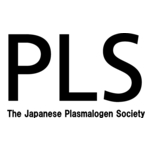FUKUOKA, Japan–(BUSINESS WIRE)–The Japanese Plasmalogen Society (Office: Higashi-ku, Fukuoka, Japan; President: Yutaka Oomura) announced the research results that scallop-derived plasmalogens enhanced memory and learning with the elucidation of its underlying mechanism.
Plasmalogens, a class of phospholipids, are abundant in brain, heart, skeletal muscle and immune cells. They can be extracted from various animals including scallops, chickens and sea squirts. Of particular note is that scallop-derived plasmalogens abundantly contain DHA-rich plasmalogens, thereby having higher functionality.
Key findings are as follows:
- Oral administration of scallop-derived plasmalogens increased hippocampal plasmalogens and thus enhanced memory and learning in mice, which was proved by the Morris Water Maze Test (a test of spatial learning) and the Novel Object Recognition Test (a test of recognition memory).
- Reduction of hippocampal plasmalogens promoted learning and memory loss along with a decrease in memory-related gene expression.
- Scallop-derived plasmalogens increased BDNF (an important regulator of neural development, maintenance and function) expression through the activation of ERK and Akt proteins (memory-related signals).
- Scallop-derived plasmalogens increased hippocampal neurons in mice, which means there has occurred neurogenesis.
All these findings show that plasmalogens in the brain activate hippocampal neurons, and thus enhance memory.
The research team led by Dr. Takehiko Fujino, Professor emeritus of Kyushu University, previously reported* that oral ingestion of scallop-derived plasmalogens improved cognitive function in patients with mild-to-severe Alzheimer�s disease or mild cognitive impairment. This study has elucidated the mechanism underlying the effect of scallop-derived plasmalogens on memory and learning.
The findings were published in Frontiers in Cell and Developmental Biology, a leading, open-access, peer-reviewed scientific journal (Impact Factor 6.081).
Article Title:�Plasmalogens, the Vinyl Ether-Linked Glycerophospholipids, Enhance Learning and Memory by Regulating Brain-Derived Neurotrophic Factor
https://www.frontiersin.org/articles/10.3389/fcell.2022.828282/full
* Fujino T et al. Efficacy and Blood Plasmalogen Changes by Oral Administration of Plasmalogen in Patients with Mild Alzheimer’s Disease and Mild Cognitive Impairment: A Multicenter, Randomized, Double-blind, Placebo-controlled Trial. EBioMedicine 2017; 17:199-205. https://www.thelancet.com/journals/ebiom/article/PIIS2352-3964(17)30071-3/fulltext
Fujino T et al. Effects of Plasmalogen on Patients with Mild Cognitive Impairment: A Randomized, Placebo-Controlled Trial in Japan. J Alzheimers Dis Parkinsonism 2018; 8:419. https://www.omicsonline.org/open-access/effects-of-plasmalogen-on-patients-with-mild-cognitive-impairment-a-randomized-placebocontrolled-trial-in-japan-2161-0460-1000419-97982.html
Fujino T et al. Effects of Plasmalogen on Patients with Moderate-to-Severe Alzheimer�s Disease and Blood Plasmalogen Changes: A Multi-Center, Open-Label Study. J Alzheimers Dis Parkinsonism 2019; 9:474. https://www.omicsonline.org/open-access/effects-of-plasmalogen-on-patients-with-moderatetosevere-alzheimers-disease-and-blood-plasmalogen-changes-a-multicenter-openlabel-109356.html
For more details, please visit https://pls.jp/wp-content/uploads/PressRelease202209.pdf.
Contacts
Naoe Hiraishi
The Japanese Plasmalogen Society
[email protected]
+81 92 273 2411







